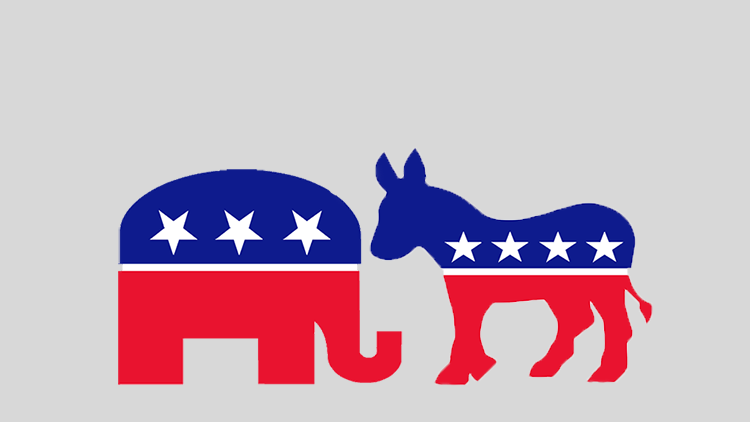Private equity firms are not often associated with job gains. A new paper by Mara Faccio and Scott Hsu reveals the political dynamics that lead private equity firms to boost employment.

Private equity firms are not often associated with job creation. More often, they are portrayed in the press and in popular culture as job destroyers who “slash and burn” or “buy, strip and flip.” When Mitt Romney ran for president in 2012, his past as the founder of private equity firm Bain Capital haunted him throughout his campaign. In a scathing Newt Gingrich ad during the Republican primaries, he was vilified as a “corporate raider.” In the same ad, private equity firms were described as “more ruthless than Wall Street.”
The debate surrounding the impact of private equity firms among economists has been ongoing since the leveraged buyout boom of the 1980s. A study published in 2013 by Steven J. Davis of the University of Chicago, along with colleagues from the University of Maryland, the University of Michigan, Harvard Business School, and the Census Bureau, found that overall, employment at firms targeted by private equity firms does drop following a buyout, but at a modest rate of only one percent over two years (once new jobs are factored in).
A new study by Mara Faccio of Purdue University and Scott Hsu from the University of Arkansas also finds that despite their image as job killers, some private equity firms do in fact significantly boost employment following a buyout.
There’s one caveat, though: many times, these are politically connected firms, which create new jobs or retain existing ones during election years in swing states or in states where corruption levels are high. This suggests an exchange of favors between private equity firms and politicians.
What Faccio and Hsu found is that buyouts by politically connected private equity firms create more jobs, or destroy fewer jobs, than buyouts by firms that are not politically connected. These firms tend to increase employment in election years, especially in states where corruption is rampant, or in states where races are very close. In turn, this raises incumbents’ chances of getting re-elected and allows firms to enjoy certain benefits.
On average, they found, employment at companies and establishments that have political connections increased by 1.24 percent annually, compared with a much more modest annual increase of 0.33 percent at companies that were acquired by private equity firms that were not politically connected. In other words, private equity firms that have political connections hire more people and fire less.

Faccio, the Hanna Chair in Entrepreneurship and Professor of Finance at the Krannert School of Management, says the study was born out of the controversy surrounding the growing political influence of private equity firms. In the past, private equity firms tended to stay out of politics, but as the private equity industry grew rapidly in the last 20 years, so did its involvement in politics.
According to the website opensecrets.org, private equity and investment firms gave $50 million in contributions during the 2014 election cycle, with 33 percent going to Democrats and the rest to Republicans. Last year, Texan private equity investor Toby Neugebauer made headlines when he contributed $10 million to Ted Cruz’s presidential campaign. Even President Barack Obama, whose campaign in 2012 castigated private equity firms for “betting against America,” received millions in donations from private equity firms throughout his political career, including donations for his post-presidential foundation and library.
Faccio’s study, still unpublished, examines the employment consequences of private equity buyouts in relation to their political connections. “There were a lot of articles in the press about private equity firms allegedly helping candidates retain jobs in exchange for the politician giving something else, and we wondered whether indeed it was a systematic situation, where politically connected private equity firms could in fact boost employment to help politicians in order to then get favors back after the elections,” she says.
To investigate whether there is, in fact, an exchange of favors between private equity firms that boost employments and politicians, Faccio and Hsu combined data from several sources. Through Capital IQ, they identified 3,748 firms that were acquired by private equity firms between 1990 and 2012. Then, they used the National Establishment Time Series (NETS) database, which provides annual sales and employment data for more than 52 million U.S. companies, to track employment and growth at the targeted firms and their establishments (over 20,000 subsidiaries, plants, and branches), supplementing this with data from Capital IQ and Preqin.
To establish political connections, they gathered biographical information on senior employees at private equity firms. They classified a firm as politically connected if at least one general partner, board member, or top executive served in a major political office (senator, congressman, governor, president), or was affiliated with someone in those roles during the period of the study. Based on this definition, they found that 14 percent of the 1,690 private equity firms covered in their sample are politically connected. Of the targeted firms, 1,265 (33.75 percent) were purchased in group buyouts where at least one of the buyers was a politically connected private equity firm.
They also found that private equity firms with political connections perform better than non-connected firms. “There are two kinds of private equity firms in America: the first one does business in a market with no political connections. The second one has politicians on boards and in advisory capacities, and a paper trail that documents their political connections,” says Faccio.

firms perform better post-buyout
In the period prior to the buyout, the average annual change in employment at businesses that ended up being acquired by politically connected private equity firms was 1.98 percent. At businesses that ended up being targeted by non-connected firms, the annual rate of change was 1.58 percent, a difference that Faccio says is statistically and economically insignificant. Following a buyout, though, the difference becomes significant. Businesses that were acquired by politically connected firms are also less likely to shut down branches, plants, and subsidiaries. They are more likely to receive benefits in the form of government contracts, grants, and low-interest loans.

When trying to investigate why politically connected firms create and retain more jobs, Faccio explored the possibility that they did so in order to curry favor with incumbent politicians looking to get re-elected. “It seemed odd that this occurs specifically in elections years, in states where electoral outcomes are more uncertain, and that it is more pronounced in states where there are high levels of corruption,” she says.
“To investigate the exchange of favors story, we looked into three things: whether there’s a benefit to the politician if there’s a boost in employment, like increasing likelihood of getting re-elected; second, presumably politicians need boosts in employment more when elections outcomes are closer; third, something that is potentially illegal is likely to occur where illegal actions appear more often, in states where are higher levels of corruption,” adds Faccio.
Looking into data from presidential and gubernatorial elections between 1990 and 2012, Faccio and Hsu found evidence to support the exchange of favors theory. Boosts in employment by private equity firms were in fact concentrated during election years, and they were more pronounced in more corrupt states, where election outcomes are expected to be close.

The problem is, worrisome as it may look to economists, not only is this particular exchange of favors not frowned upon—it is incentivized. Politicians, after all, have been suggesting a similar type of exchange as a major part of their job creation programs for decades: we’ll de-regulate and go easy on businesses, and they in turn will create more jobs.
Job creation is one of the central measures of success in American politics, and every politician wants to bask in the glory of having created jobs. In 2012, for instance, while the Obama campaign attacked private equity firms, the Wall Street Journal reported that the White House encourages the Carlyle Group—one of the most politically connected private equity firms—to purchase a struggling oil refinery in Philadelphia. The purchase saved 850 union jobs in Pennsylvania, an important swing state.
Voters, too, are generally supportive of going easy on firms in return for retaining existing jobs and creating new ones. It’s legal, after all, and as long as people don’t lose their jobs, some might ask: what is the problem? Employers are happy, businesses are happy, private equity firms are happy, and politicians are happy. Everybody wins.
The issue, says Faccio, is not legal, but economic: “From the point of view of an economist, this is very concerning.” The companies that are getting more favors from politicians, she says, tend to be larger companies. The favors they get allow them to retain market share and therefore create a barrier to entry.
“The issue is whether this is conducive of something that in the long run is going to make the country better, or lead to something that is along the path of a developing country,” she adds.






